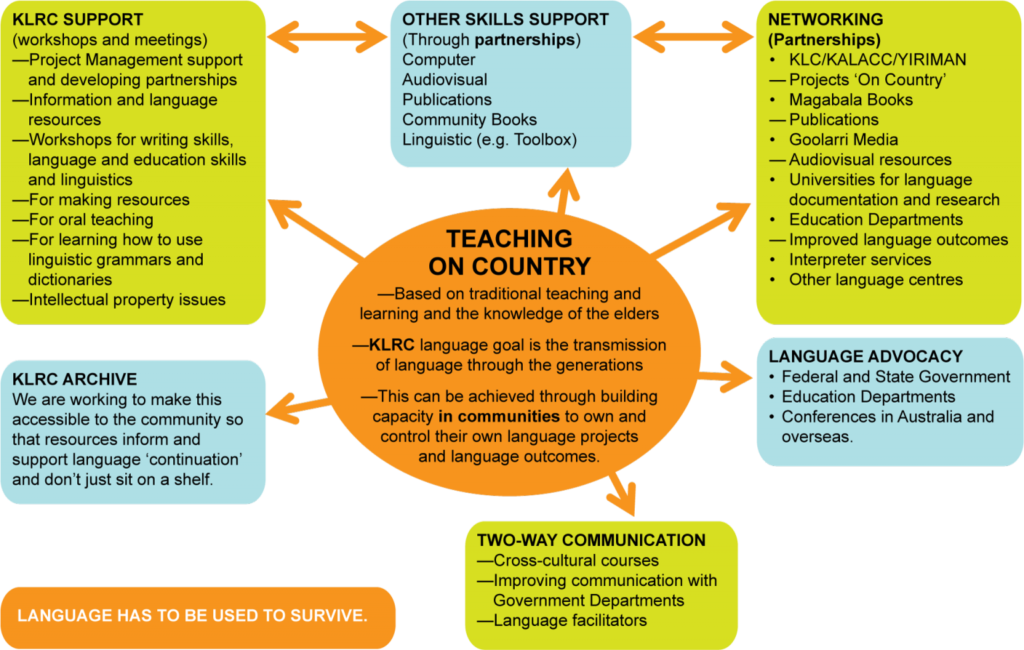TEACHING ON COUNTRY
Since 2005 the KLRC has used the phrase Teaching On Country to capture the strategic direction of the organisation. It captures the important connection between languages and country and emphasises the fact that Australian Aboriginal languages are oral (spoken) languages.
The idea of Teaching on Country is based on a foundational truth for Kimberley Aboriginal people that Language cannot be separated from Land, Law and Culture. All knowledge has its roots in the country and that knowledge is contained in the languages.
Children do not learn to speak languages just from writing. This is true for all humans. They need to hear lots of spoken language when they are young. Reading and writing is only introduced when children attend school. This is also where they learn knowledge about the world beyond their family and community.
Aboriginal languages are oral languages that have been used for thousands of years. The older generations did not learn their languages through writing. They did not learn knowledge in a Western-style classroom. Aboriginal children attend school now, where they learn English and about a world very different from the world of their old people.
This makes it all the more important for Elders and language speakers to speak language(s) as much as possible to the younger generations. The KLRC believes strongly that they should be supported to pass their language and knowledge on in the way they learned it. Children can still attend school and learn about the wider world, but they also have a right to their own languages and knowledge in their home and community environment.


